Descrição da Situação do Autismo das Pessoas com Autismo na América Latina
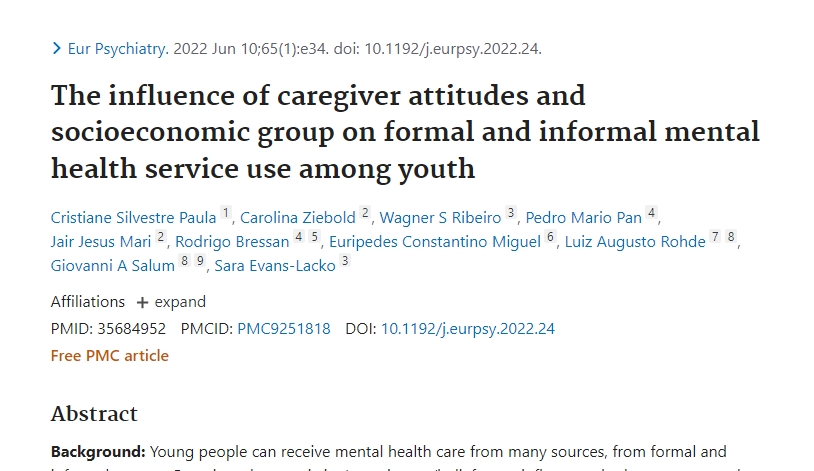
Abstract
Background: Young people can receive mental health care from many sources, from formal and informal sectors. Caregiver characteristics/experiences/beliefs may influence whether young people get help and the type of care or support used by their child. We investigate facilitators/barriers to receiving formal and/or informal care, particularly those related to the caregiver’s profile.
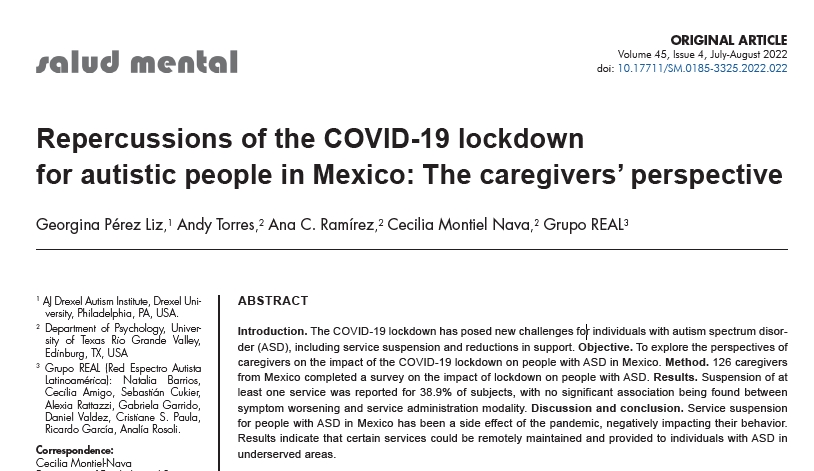
ABSTRACT
Introduction. The COVID-19 lockdown has posed new challenges for individuals with autism spectrum disorder
(ASD), including service suspension and reductions in support. Objective. To explore the perspectives of
caregivers on the impact of the COVID-19 lockdown on people with ASD in Mexico. Method. 126 caregivers
from Mexico completed a survey on the impact of lockdown on people with ASD.

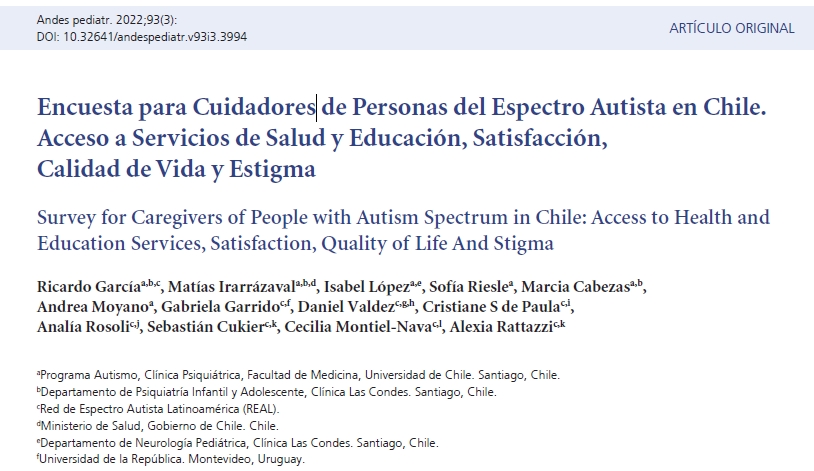
Resumen
Las personas del Espectro Autista (EA) enfrentan múltiples necesidades de salud, educación, problemas
sociales y económicos. La información disponible en Chile es insuficiente. Objetivo: Conocer el
acceso y satisfacción con servicios de salud y educación, el impacto familiar y económico, estigma y
calidad de vida de personas EA y sus familias en Chile.
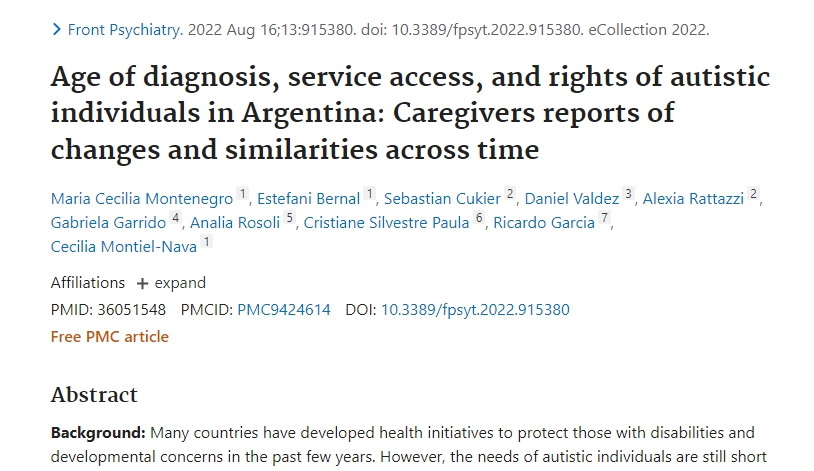
Abstract
Background: Many countries have developed health initiatives to protect those with disabilities and developmental concerns in the past few years. However, the needs of autistic individuals are still short of being fulfilled. Partially due to limited research expenditure, which would allow bridging the gap between evidence and practice, the long time it takes to implement passed laws, and the limited operationalization of inclusive policies.

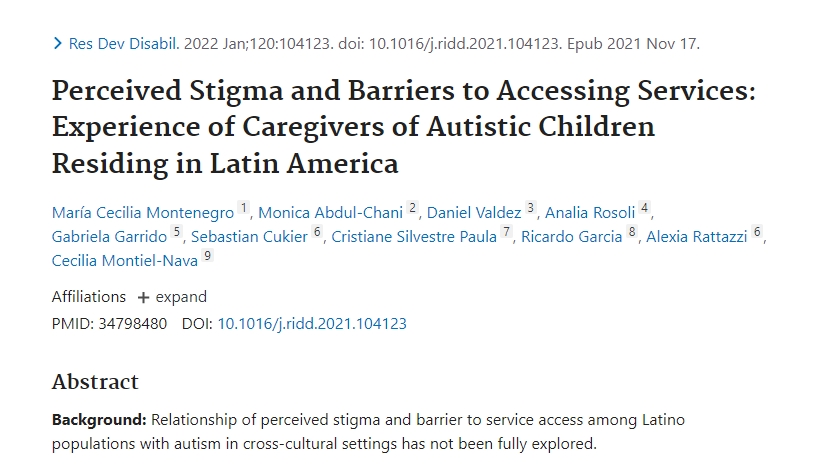
Abstract
Background: Relationship of perceived stigma and barrier to service access among Latino populations with autism in cross-cultural settings has not been fully explored.
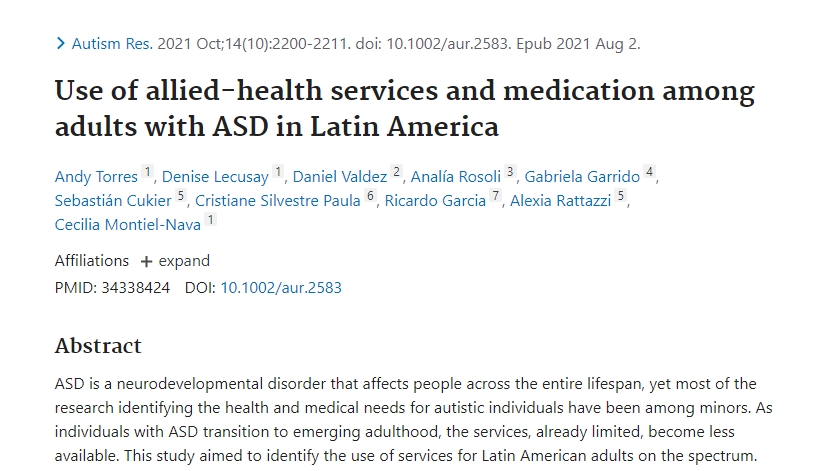
Abstract
ASD is a neurodevelopmental disorder that affects people across the entire lifespan, yet most of the research identifying the health and medical needs for autistic individuals have been among minors. As individuals with ASD transition to emerging adulthood, the services, already limited, become less available. This study aimed to identify the use of services for Latin American adults on the spectrum. We surveyed 295 caregivers of adults with ASD from six Latin American countries. Comparing the results for all the possible services observed in this study, the adults in our sample were primarily underserved: 84.4%-95.9% were receiving zero hours per week, 3.7%-12.9% 1%-10 h, 0%-1.7% 11-20, and only 0%-1% above 20 h of services.

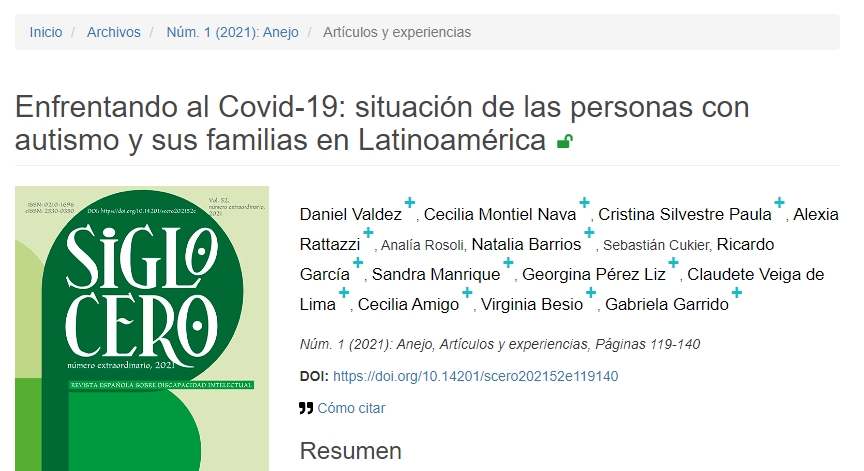
Resumen: Presentamos un estudio multicéntrico realizado a través de una encuesta
en línea a 1826 familias de personas con TEA de Argentina, Brasil, Chile,
México, Perú, República Dominicana, Uruguay y Venezuela. Nuestro objetivo es
describir el impacto de la pandemia –y el aislamiento social– en la conducta, el estado
de ánimo, el sueño y la alimentación de las personas con TEA.
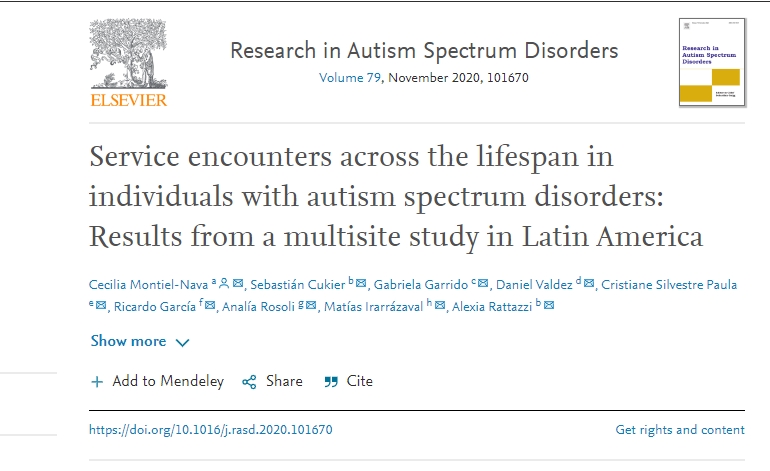
Abstract
Background
Core symptoms of Autism Spectrum Disorder (ASD) continue to affect everyday life as children grow and transition into adulthood. That way, different services may be needed at various stages of their lifetimes.

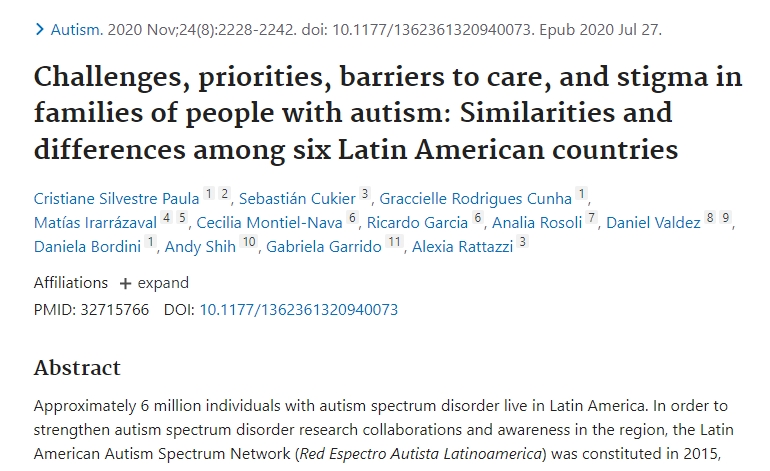
Abstract
Approximately 6 million individuals with autism spectrum disorder live in Latin America. In order to strengthen autism spectrum disorder research collaborations and awareness in the region, the Latin American Autism Spectrum Network (Red Espectro Autista Latinoamerica) was constituted in 2015, comprising researchers and clinicians from the following six countries: Brazil Argentina, Chile, Uruguay, Venezuela, and the Dominican Republic.
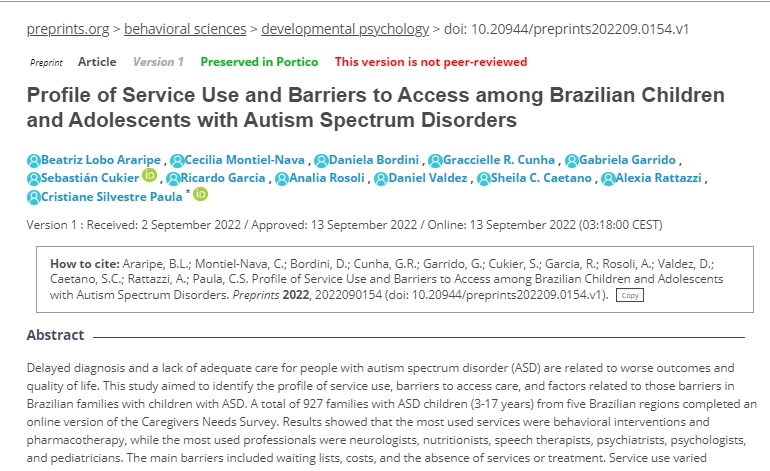
ABSTRACT: Delayed diagnosis and a lack of adequate care for people with autism spectrum
disorder (ASD) are related to worse outcomes and quality of life. This study aimed to identify the
profile of service use, barriers to access care, and factors related to those barriers in Brazilian families
with children with ASD. A total of 927 families with ASD children (3-17 years) from five Brazilian
regions completed an online version of the Caregivers Needs Survey.
